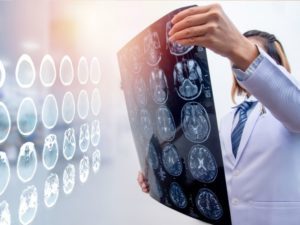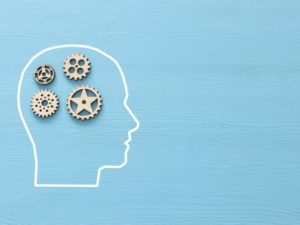
A traumatic brain injury (TBI) can impact a person’s daily functioning in many ways. Memory, concentration, speech, motor planning, emotional regulation, and organizational skills can all be disrupted by a brain injury.
Even a concussion — the mildest form of TBI — is linked to forgetfulness, confusion, delayed response to questions, and irritability. Nearly all of these symptoms are shared by people with attention deficit hyperactivity disorder (ADHD), a neurodevelopmental disorder that often begins in childhood.
But does a TBI cause ADHD? The jury’s out on that one.

“This is not surprising because some of the most persistent consequences of TBI include ADHD-like symptoms, such as memory and attention impairment, deficits in executive functions such as planning and organization, processing consonants and vowels, and impulsive behavior,” says the study’s lead author, Dr. Gabriela Ilie.
Other studies have found similar associations between ADHD symptoms after traumatic brain injury in children. A recent study published in the Journal of Head Trauma Rehabilitation found that many children who were not diagnosed with ADHD before their brain injury showed symptoms of secondary ADHD (SADHD), a form of the disorder that develops after trauma.
Children with TBI and SADHD were shown to have problems with executive functioning and behavioral regulation, which puts them at risk for significant impairments in the future, according to the researchers.
While all of this research certainly confirms an association between a TBI and ADHD, some experts prefer to think of ADHD as a potential complication from a TBI rather than caused by the brain injury itself. Genetic factors and damage to areas of the brain associated with ADHD could also explain the development of symptoms in people without a history of the disorder. There’s simply no clear answer.
What is abundantly clear is that people with traumatic brain injuries and ADHD face significant challenges that can affect their ability to function well in daily life. It can interfere with their ability to work. It can make them irritable, short-tempered, and prone to emotional overreaction. This can make it especially challenging for certain individuals to maintain satisfying professional and personal relationships moving forward.
If you’ve been diagnosed with a TBI after an accident, getting the right medical treatment and rehabilitation can help improve your prognosis and daily functioning. However, the costs of living with a brain injury can be astronomical. That’s especially true if you are contending with long-term disabilities after your injury and cannot work.
Contact a Michigan TBI Lawyer Today
Is someone else to blame for your brain injury? A Michigan TBI lawyer at Christensen Law can investigate your case and demand maximum compensation on your behalf. Our proven attorneys have obtained impressive case results for our clients, including a record-setting verdict on behalf of a Michigan woman who suffered a TBI in a truck accident. Let us help you, too.
Call or contact us for a free consultation.





